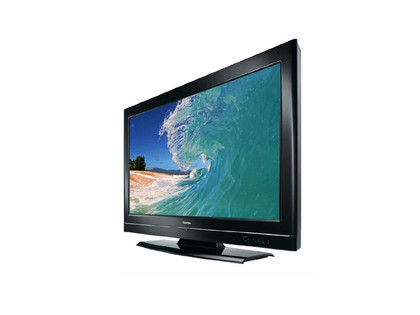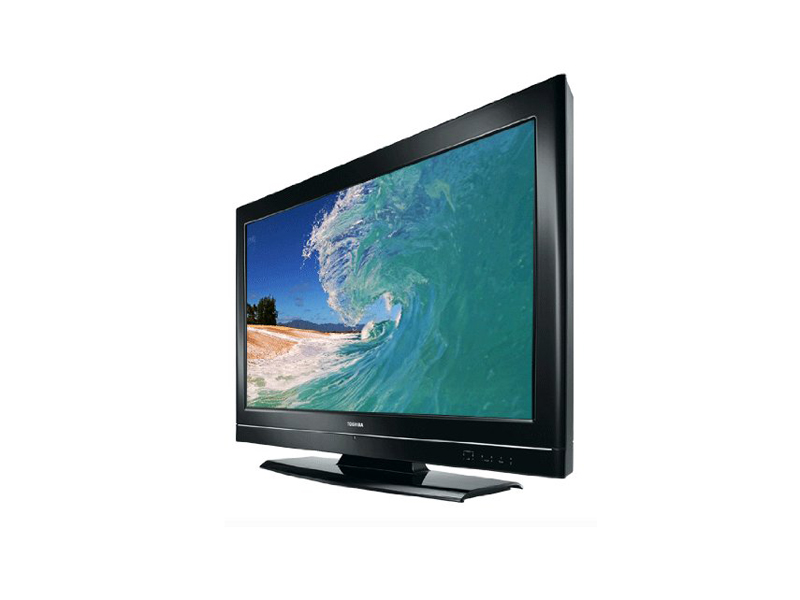Why you can trust TechRadar

By the standards of your typical insanely cheap TV, the 22BV501 is quite nicely put together, with a glossy finish and a modicum of unfussy style. It sticks out more than most around the back, but this is no great shakes considering that it's the TV's front you'll be looking at for the most of the time unless you're a bit weird.
The only worry about the 22BV501's design concerns its little pedestal stand, for this seems too narrow for comfort, raising issues about the TV's stability if you've got rogue pets or children charging about.
The 22BV501's connections are a mix of the good and the just-about-OK. Good is the inclusion of a surprisingly flexible USB port, through which the TV can play MPEG-1, MPEG2, and XviD video files as well as the more predictable JPEG photos. Such multimedia support is always welcome on a second room TV, especially if the recipient of the TV is likely to be a media-savvy teenager!
It's also good to see a D-Sub PC port on the 22BV501 so that it can double up as a PC monitor. But slightly disappointing is the provision of just one HDMI when most TVs now manage at least two. Still, it's entirely possible that the 22BV501's second-room proposition will mean that only one - or maybe even no - external source is going to be connected to it.
The screen's spec is basic by today's standards, with its 1366x768 (rather than full HD) resolution, and simple CCFL lighting rather than edge LED. But its claimed dynamic contrast ratio of 8000:1 is certainly markedly higher than that boasted by most small-screen TVs - even though such manufacturer-recorded contrast figures always have to be treated with a huge pinch of salt.
Starting to explore the 22BV501's onscreen menus reveals first that the supplied remote control is much better than the sort of small, poorly designed efforts found with most budget TVs, and second that the onscreen menus, while ugly, are at least more legible than is often the case on small TVs. Which is to say that they employ text that's actually large enough to read without a magnifying glass.
There are a few more options within the onscreen menus than might have been expected too, including a red-to-green sliding bar system for tweaking colour levels, an HDMI True Black option that shifts the HDMI's black level depth downwards, and noise reduction settings. Gamers should also note that there's a dedicated Game preset that automatically strips out all but the most fundamental video processing circuits, to reduce input lag to a respectable 40ms.
Sign up for breaking news, reviews, opinion, top tech deals, and more.
In action, the 22BV501 initially looks unexpectedly good. Its pictures are extremely bright for such a small set - much brighter than the quoted 300cd/m2 light output would have lead us to expect. This helps it push its colours forward with rare vibrancy for a small-screen TV, immediately making it a much more feasible option for a bright environment like a conservatory or kitchen than your average, usually dull small screen TV.
Colours manage to be believable in tone as well as vibrant - though you're advised not to use the set's Dynamic preset, as this pushes brightness so hard that light colours tend to 'white out' and lose all semblance of subtle shading and detail.
As well as being brighter than most small TVs, the 22BV501 is also sharper when showing HD material, managing to give a pretty acute sense of HD's detail and texture advantages despite its cheapness and the relative diddiness of its screen. It's great to find this sharpness being delivered without making the picture look bitty or grainy, too.
Not that the 22BV501 is only interested in HD, mind you. Pictures from DVDs and its own standard definition Freeview tuner also look slightly cleaner and less smeary than is usually the case on very affordable small TVs.
While the 22BV501 delivers a hugely persuasive performance for its money with bright content, though, the wheels come off drastically when you start to watch anything dark. Why? Because the 22BV501's backlight consistency is seriously bad.
The main problem is the appearance of a marked 'hot spot' circle of extra brightness that appears over a fairly large portion of the image's centre during dark scenes. But this is joined when watching dark content by a cm or so of backlight bleed around the picture's edges, and short jets of extra illumination spilling in from the screen's corners. Not surprisingly, the result of all this uneven lighting is that you feel like you're watching dark footage through some kind of weird - and highly distracting - filter.
It should be stressed that you don't see any of these issues with the almost exclusively bright content that makes up a typical daytime TV schedule. In fact, where 'bits' of blackness appear as mere parts of a generally bright picture, the 22BV501's black performance seems highly credible for its money. But the backlight flaws slap you in the face during predominantly dark scenes, making the 22BV501 problematic to say the least if you're likely to watch a lot of films or play a lot of games on it (given that both these sorts of content tend to contain lots of dark material).
The 22BV501's contrast concerns aren't helped, either, by the way black levels drop off swiftly if you have to watch from any sort of angle down the TV's sides.
The last thing to touch on regarding the 22BV501's performance is its audio. Which is actually about adequate by small TV standards, but fails to sound ultimately convincing thanks to the way a lack of bass leads to trebles being over-stressed and the soundstage becoming harsh under any sort of pressure.
The TechRadar hive mind. The Megazord. The Voltron. When our powers combine, we become 'TECHRADAR STAFF'. You'll usually see this author name when the entire team has collaborated on a project or an article, whether that's a run-down ranking of our favorite Marvel films, or a round-up of all the coolest things we've collectively seen at annual tech shows like CES and MWC. We are one.
